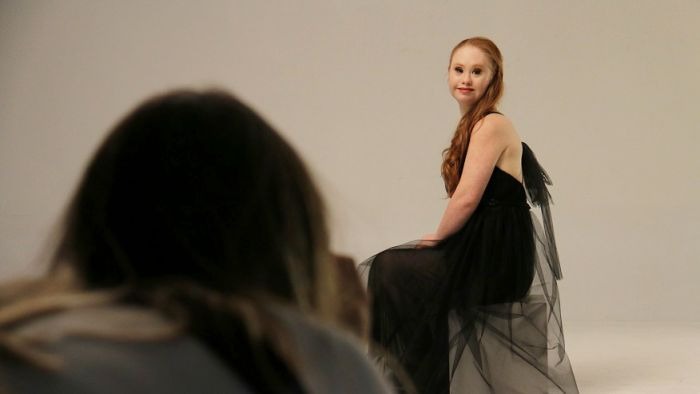You were born to stand out
- rachaelcampbell078
- Oct 21, 2020
- 3 min read
Updated: Oct 25, 2020
I was reading an article the other day about a Brisbane girl who has become Australia’s first international runway model with down syndrome. Her name is Madeline Stuart, and after her Mum posted her photo shoot on Instagram, she became an overnight success. She is strikingly gorgeous, yes. But what struck me is, she is the first. What has taken so long?
(Images: Pinterest)
It got me wondering how common it is for people with disabilities to be represented in the media. I thought about tv shows and movies….there are an obvious few – ‘Rain Man’, ‘Forrest Gump’, ‘The Big Bang Theory’, ‘The Good Doctor’. As a society we have come a long way from the days of locking anyone away who was odd or different and are becoming much more accepting and inclusive of all people. So, is our media reflective of that evolution, and is that what we really want to see on our screens and hear about via media?
To see a list of awesome inclusive tv shows, click here: https://www.verywellfamily.com/special-needs-tv-3105918
There is a fabulous blog https://disabilityinkidlit.com/ written by people with disabilities, reviewing books portraying characters with disabilities. Many of the books I have used with classes in order to enlighten, educate, engage a level of empathy and celebrate our differences. I thought I was doing a service to these young people by broadening my students’ horizons. However, according to Dr. Tracey Worrell (2018), I may be doing quite the opposite.
In her book, ‘Disability in the media: examining stigma and identity’, she examines the representation of disability in the media and labels it ‘inadequate, inaccurate, and mostly negative’ (Worrell, 2018, p.97) which she fears may alter society’s view and treatment of individuals with disabilities. When I think about it, many villainous or pitiful characters in popular culture have some sort of disability or difference: Captain Hook, many of James Bond’s arch-enemies, the Joker, Daredevil, The Hunchback of Notre Dame, The Elephant Man… the list goes on. (Nelson, 2000).
(Images: Pinterest)
I came across a statistic in another blog, www.aruma.com.au/about-us/blog, that only 3.1% of actors on tv (and we can probably assume across all media) have a disability. I say, let’s move away from stereotypes and allow more real people with a disability across the media – from acting to presenting to modelling. With #disability showing 1,387,663 posts on Instagram, we know you are out there!

On a more positive and encouraging note though, some comedians with disabilities are now righting this wrong and using their platform to raise awareness about their particular disability in a hilarious but respectful way. Some people here might be old enough to remember Steady Eddy, there’s also Adam Hills, Francesca Martinez, Josh Blue and Alex Brooker as a few other examples.
(Image: Pinterest)
So, what have I learned from my reading? Well, I would agree that media is a powerful thing, and while some depictions of disability have become less stigmatizing, there has been an unfortunately bad track record of portraying people with disabilities in a very stereotypical way. As we are all active participants in media today, I suggest that there is much room for improvement.
Are we up to the challenge? I really think we are.
References
Aruma, (2019). Disability Stereotypes in the Media. https://www.aruma.com.au/about-us/blog/run-forest-run-disability-stereotypes-in-the-media/
Duyvis, C. (2018). Disability In Kid Lit. https://disabilityinkidlit.com/
Nelson, J. (2000). The Media Role in Building the Disability Community. Journal of Mass Media Ethics 15(3), 180–193.
Worrell, T. (2018) Disability in the media: examining stigma and identity. Lexington Books.

















What a great post! How wonderful that this young woman is being celebrated for all her beauty. At the same time, it is concerning that there is such an under-representation of people with disabilities in the spotlight. Why is this? Do disabilities make some people feel uncomfortable? Is it that they do not know anyone with a disability, therefore it is the fear of the unknown that makes them uncomfortable? I hope that as a society we can progress where it is the norm to see people with disabilities being celebrated just as readily as the rest of society are. Thank you for sharing.